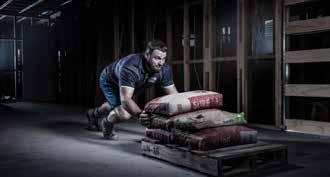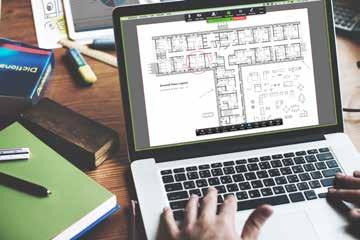HEALTH AND SAFETY —
Stay safe, speak up Adjusting to life under the “new normal” can be challenging. In the construction sector, it’s meant getting to grips with the additional COVID-19 safety protocols designed to prevent the spread of the virus. This can be even more challenging when there are multiple trades on site at the same time. So, what happens if you and your team are doing your bit to prevent the spread but someone else on site isn’t? Site Safe looks at your rights, responsibilities, and when to speak up. If you have concerns that the actions of workers from another PCBU may be putting you or others at risk e.g. not following good hygiene practices like washing or sanitising hands, you should treat this like any other health and safety issue you may encounter on your site. In a nutshell, under New Zealand’s health and safety law, the main contractor/PCBU (person conducting a business or undertaking – note this is a legal term for the business and it can mean an organisation or an individual) in charge of the site has a responsibility to ensure that all those on site have good health and safety practices in place and that the work of their contractors is not putting anyone – including the public – at risk. The COVID-19 situation is no different from any other health and safety issue. Generally, workers don’t deliberately breach health and safety procedures; but we’ve all made mistakes at one time or another that has led to an incident and this will be no different for the COVID-19 protocols that have been put in place. There will also need to be a record of an occurrence as a safety incident; this is especially important for COVID-19 contact tracing. Remember, it’s always important to speak up if you see something you know is unsafe on site. In the first instance, and if you’re comfortable doing so, go and have a chat with the person involved. Chances are they didn’t realise what they’ve done and will be grateful for a friendly reminder. If you can’t do this or don’t receive an acceptable response, then you should bring it to the attention of your manager or supervisor, who should then let the main contractor or person in charge of the site (on a residential site, this may be the client) know what’s going on. If you feel your concerns have not been taken seriously or addressed appropriately, you can stop or refuse to carry out work if you believe that the work is unsafe or would expose you to a serious health and safety risk (in this case exposure to COVID-19). If you do this, then you should inform your manager immediately and remain available to carry out suitable alternative work. If the issue can’t be resolved, then any of the parties involved may request WorkSafe to mediate on the issue – see the WorkSafe website for more information. Whether the issue is with your own employer or with another contractor on site, or with the main contractor, and it is putting people at serious risk, then there are a few options to consider: • Talking with your own employer • Involving your health and safety representative
32
• • • • • •
Involving your safety committee Talking to your union representative Asking your industry association for advice Seeking advice from Site Safe Cessation of work Requesting WorkSafe to intervene
Under the Health and Safety at Work Act, workers have the right to: • Work in a healthy and safe environment • Speak up about health and safety ideas or concerns • Be given a chance to have a say • Ask for a health and safety representative or committee • Appropriate training before starting work • Work with safe machinery, vehicles, tools and equipment • Have access to health and safety information • Be provided with PPE if appropriate • Stop or refuse to carry out dangerous work – you must tell your manager as soon as possible if this is the case • Be provided with toilets and handwashing facilities, clean drinking water, first aid facilities and a place to have a meal break in reasonable comfort and shelter • Understand what to do in an emergency. Workers are responsible for: • Taking reasonable care of their own health and safety • Take reasonable care that what they do doesn’t make others unsafe • Comply with any reasonable instruction from the PCBU • Cooperating with any reasonable health and safety policy or procedure of the PCBU. If you have questions about the COVID-19 protocols and how to apply these on site, you can make use of the Ask an Advisor form on the Site Safe website www.sitesafe.org.nz, or contact a Site Safe health and safety advisor directly. Site Safe is also offering a new Pandemic Readiness Review (audit) service for businesses keen to find out how they’re measuring up to the COVID-19 protocols.
Jeff Strampel, Health and Safety Lead, Site Safe NZ. Site Safe is a not-for-profit, membership-based organisation that supports a culture of health and safety in New Zealand construction.























